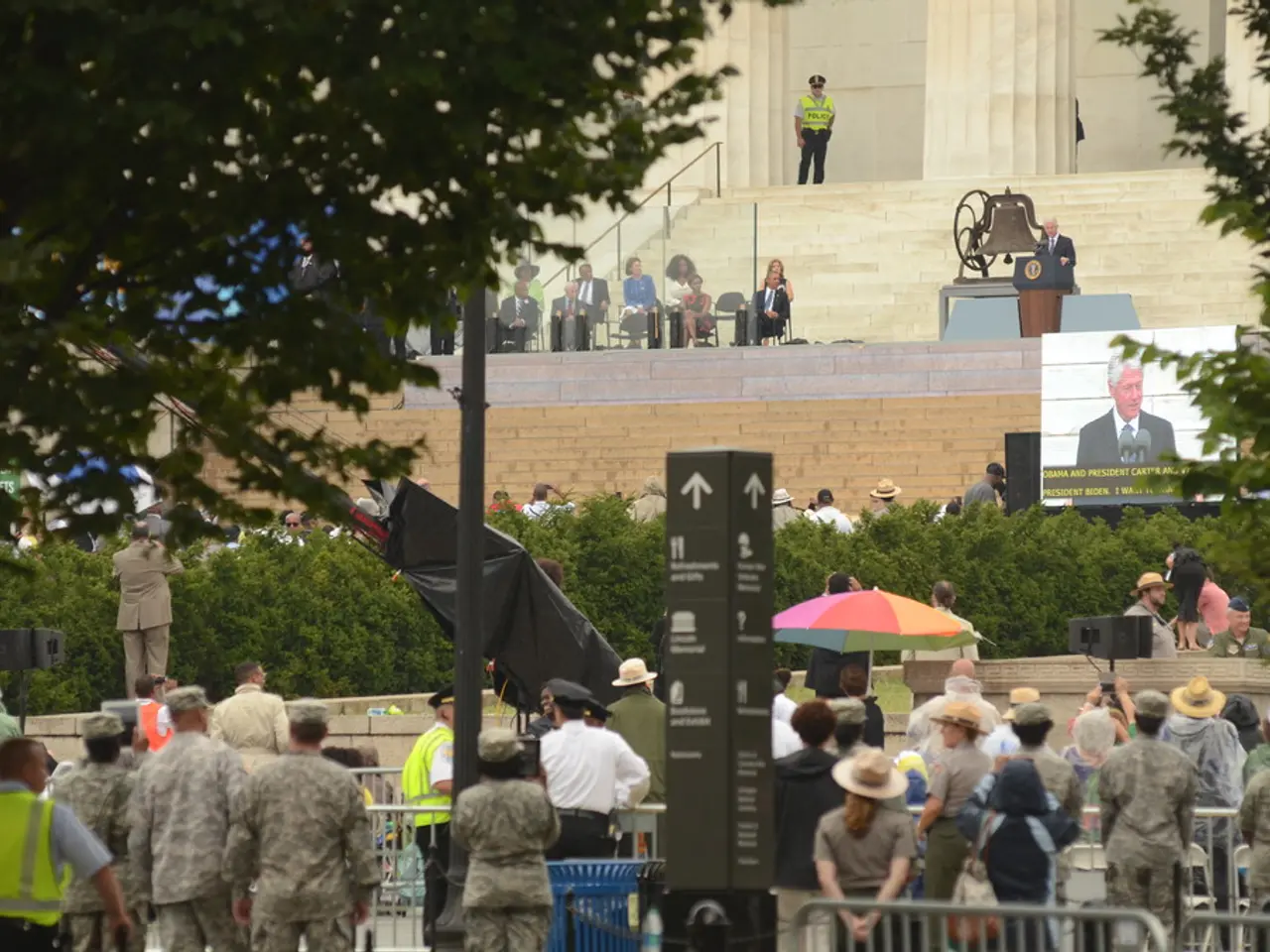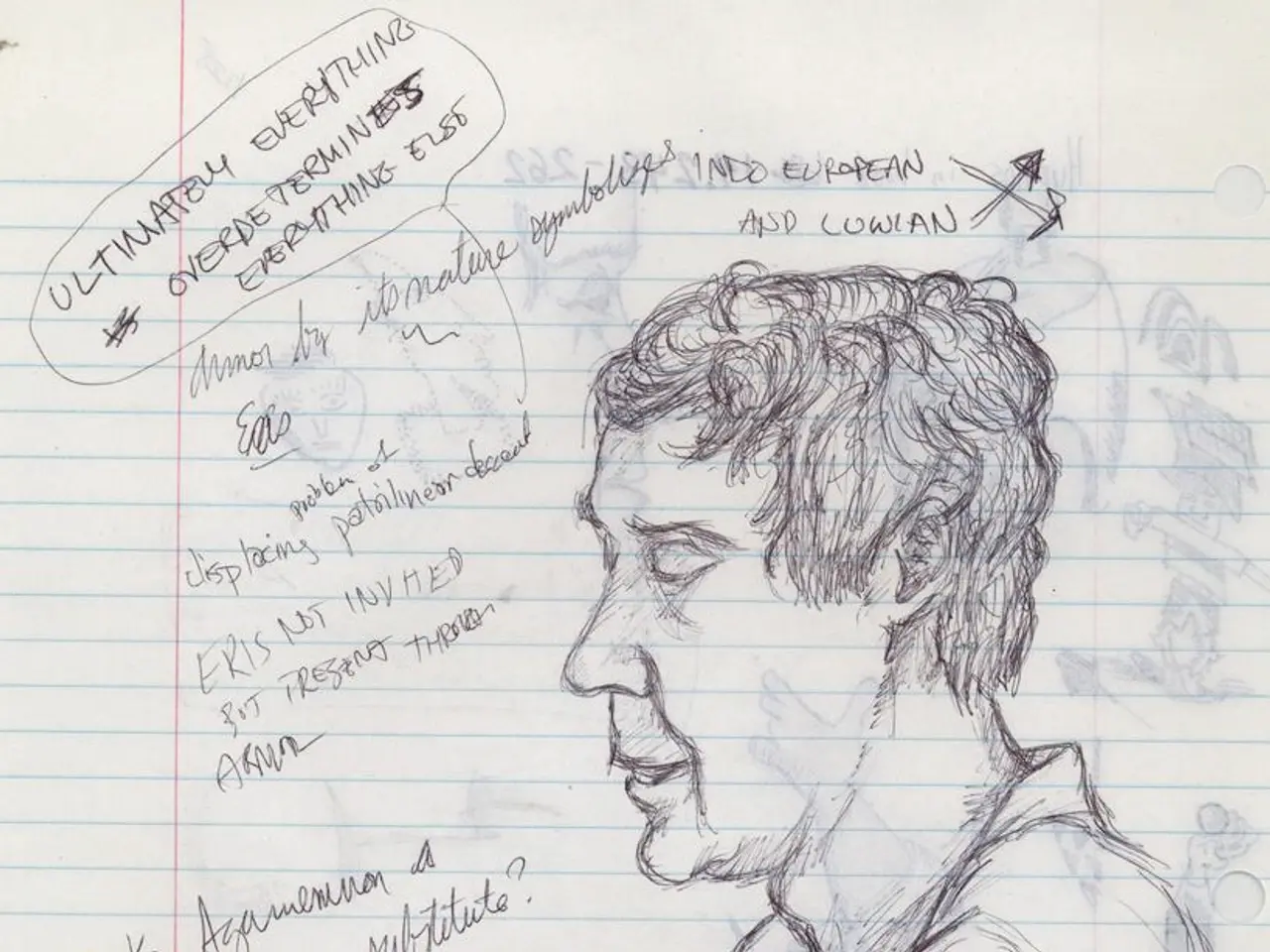Egypt's Role in Potential Israel Incursion on Rafah: Will Egypt Prevent Israel from Invading?
Frank and Forthright Talk: The latest whispers suggest a spectacle unfolding in the heart of the Middle East as the Israeli and Egyptian military conspire in clandestine settings. A looming assault on the populous town of Rafah in Gaza is under debate, coupled with a proposed truce and hostage deal to put an end to the ongoing conflict.
These meetings took place in the bustling city of Cairo, with concerns brewing in Egypt over the potential influx of refugees pouring into its territory should Israel proceed with an invasion. To discuss the intricate details of this potential deal, Israeli officials have allegedly visited Tel Aviv to chat with representatives from the Shin Bet, the Israeli army, and Mossad.
Meanwhile, word on the street is that the Egyptian government is determined to apply pressure on Hamas to secure an agreement for hostage releases. A definitive deadline has supposedly been set, with Israeli officials reportedly informing the Egyptian delegation that this was their last chance to negotiate before moving ahead with the Rafah invasion.
The clash between the two nations is a loaded one, with a rich history dating back to 1979, when the Egypt-Israel Peace Treaty was signed. Any invasion of Rafah, as hinted by statements from Egyptian media, would allegedly violate this treaty, prompting a stern response from Cairo.
The occupied town of Rafah is a densely populated area, home to over a million people, and an invasion could force tens of thousands of Palestinians towards Egyptian territory. Egypt has steadfastly refused such a scenario, and Israel, unwilling to dismiss such a vast migration, has reportedly prepared makeshift accommodations in the form of thousands of tents. However, the sheer number of people impacted makes such arrangements unfeasible.
In an attempt to avoid such a crisis, Egypt has announced its aim to push for a prisoner exchange deal. This measure, while not guaranteed to postpone the invasion indefinitely, is their best hope of putting a halt to Israel's plans. As Egypt prepares for the worst-case scenario of an invasion, they are drafting contingency plans to cope with the mass displacement of Palestinians, including designated controlled and monitored camps and intensified security presence in the entrances and exits of the Sinai.
Cairo views the potential invasion as a nightmare for their security and future stability. With all other avenues seemingly exhausted, Egypt's best bet is to prolong the negotiations, hoping that the balance of power may shift in favorable directions in Tel Aviv or Washington.
Interestingly, the contradictory borders of Rafah have a deep history. Originally, the city was one seamless entity; however, after Israel's withdrawal from the Sinai in 1982, it was demarcated into two. Despite the division, familial ties between the cities remain, creating yet another layer of complexity to the already fraught situation.
If Palestinians are displaced towards Egyptian territory, this would pose a significant security challenge for the Egyptian government. Not only would these individuals need resettlement, but an occupied territory could potentially serve as a resistance base against Israel. Moreover, the loss of inhabitable lands in Gaza makes the prospect of returning home all but impossible, potentially leading thousands of displaced individuals to take up arms against Israel.
The Egyptian military has long battled armed factions targeting the state and civilians, but this dynamic could change if resistance operations were to arise from Egyptian territory. Any intervention by the Egyptian army would be perceived as protecting Israel's security, weakening the army's own legitimacy. On the other hand, if resistance operations against Israel were to originate from Egyptian territory, Israel could justify attacking Egypt directly. This complex web of tensions leaves Egypt in a precarious position, unwilling to engage in a violent confrontation that could escalate tensions with Israel and its US backers.
For over four decades, the relationship between Egypt and Israel, underpinned by U.S. support, has formed the cornerstone of the region's security. However, this alliance is being tested as never before, with Israeli Prime Minister Netanyahu seemingly ready to risk all to save himself from inevitable judges. This standoff could lead to a tearing apart of the peace treaty between Egypt and Israel, and have lasting implications for the entire Middle East.
- Analysis indicates that an impending Israeli assault on Rafah in Gaza is under discussion, along with a proposed truce and hostage deal, largely taking place in Cairo, Egypt.
- Israeli officials are alleged to have visited Tel Aviv for negotiations with the Shin Bet, Israeli army, and Mossad regarding this potential deal.
- Egyptian media reports suggest that any invasion of Rafah, home to over a million Palestinians, might breach the Egypt-Israel Peace Treaty of 1979, leading to a stern response from Cairo.
- Egypt is actively seeking a prisoner exchange deal to avoid a potential humanitarian crisis and Israel's proposed invasion, even as negotiations seem to be reaching a critical juncture.
- Iran, Egypt's strategic partner, and other Middle Eastern nations are closely watching the developments between Israel and Egypt, with various media outlets providing ongoing news and opinion on the war-and-conflicts in the region.
- In case of Palestine's displacement towards Egyptian territory, Egypt faces a significant security challenge, as an occupied territory could serve as a resistance base against Israel.
- Amidst these tensions, the ongoing Palestinian protests and the complexity of the Rafah border, which was originally one seamless city, add layers of intricacy to the Middle East's general news.







